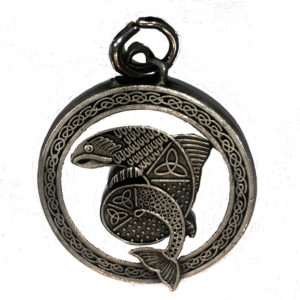However long the day, the evening will come.
Variants: “Más fada an á tig an oíche faoi dheireadh.” (If the day is long, the night will come at last.) “Dá fhaid é an lá, tagann an oíche.” (However long the day, night will come.) “Dá fhada samhradh, tagann an geimhreadh.” (However long summer, winter will come.) Everything must come to an end. All good things must come to an end. The longest day must have an end. Non vien dì, che non venga sera. – Italian (There is no day without an evening.)
Note: In a sense, this Irish proverb can not be directly translated into English. This is because the Celt has a different world view than the Saxon. Each of these world views is embedded in each language. For the Saxon, night is the end of day. From the given English translation of this proverb, an English speaker might infer that no matter how good the day is, it will end. Or at least, the English speaker must infer that all things must end. However, for the Celt, night is the beginning of the day. Therefore, this proverb actually implies that no matter how bad the day is, a new one is coming, or, at least, tomorrow will be a new day.
Note also: There are four fundamental meanings of the initial word of this proverb, dá.
- dá + eclipsed verb in the conditional mood
- if, e.g., dá mbeadh an lá fada (if the day were long)
- dá + eclipsed verb in the active mood
- combination of preposition ‘do’ or ‘de’ + relative article ‘a’ — to or for or on whom or which, e.g., lá dá bhfaca mé é (day on which I saw it/him)
- dá + noun
- 1. combination of preposition ‘do’ + possesive adjective ‘a,’ to or for his, hers, its, or theirs, e.g., dá lá (for his/her/its/their day), dá mhac (for his son)
2. combination of preposition ‘de’ + possesive adjective ‘a,’ of or from or off his, hers, its, or theirs, e.g., dá ceann (from her head)- dá + lenited abstract noun denoting degree
- however, .e.g., dá mhéad (however much).
Of course, this last form appears in our proverb. ‘Fada’ is an abstract noun meaning length, distance, or duration, so ‘dá fhada’ means ‘however long.’
